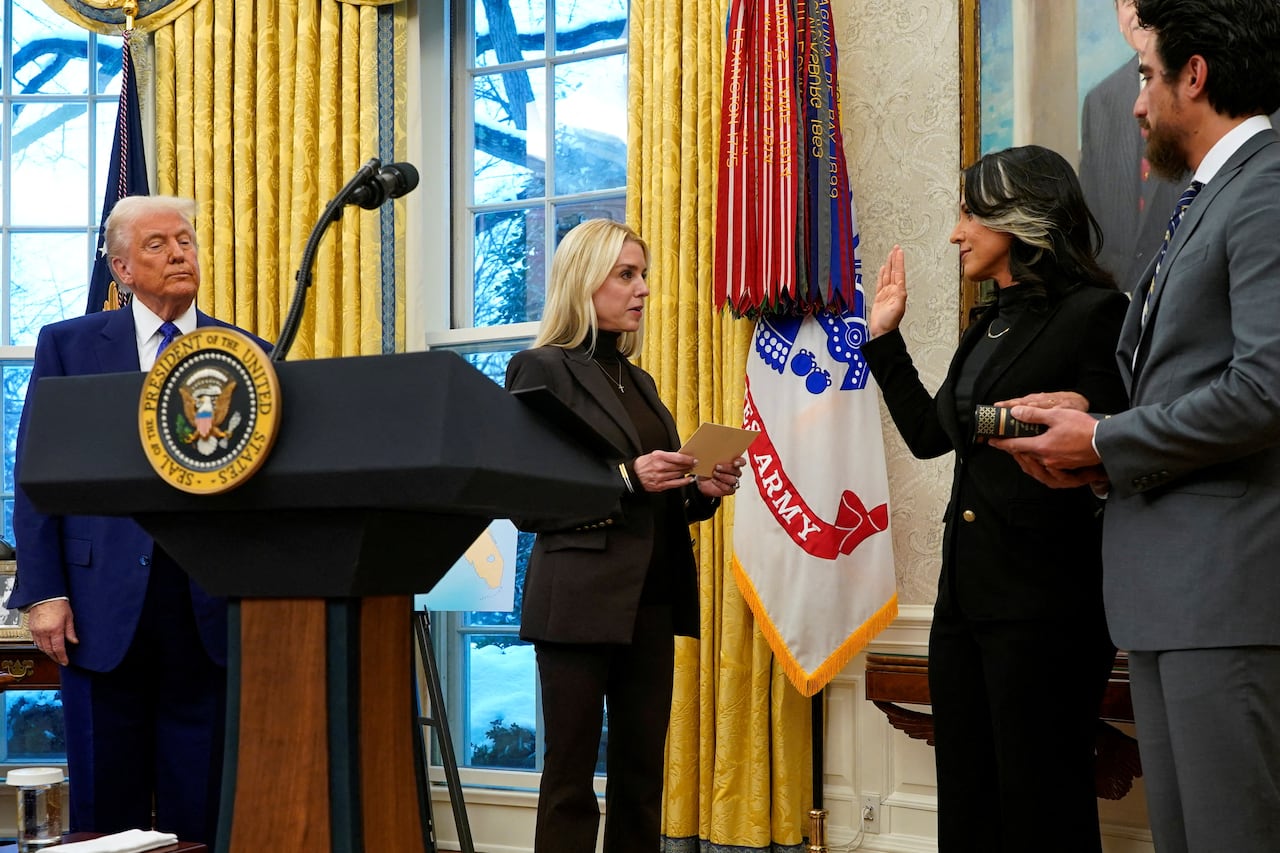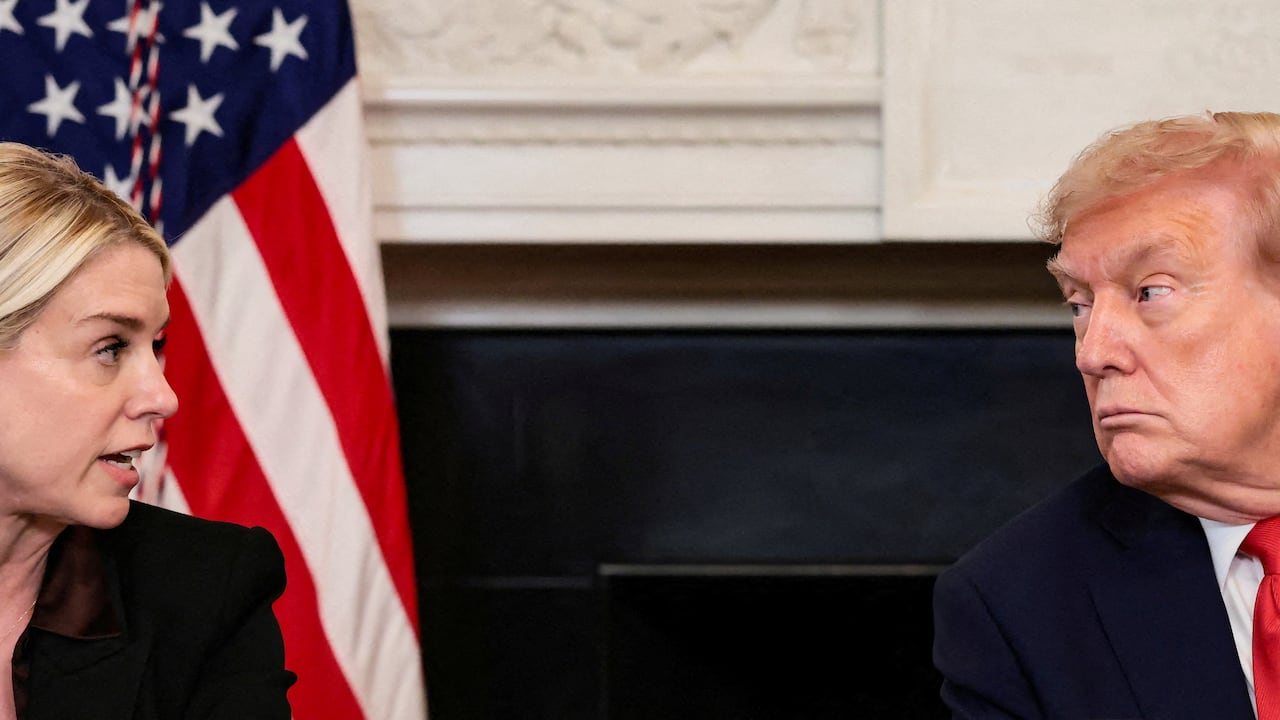A group of dozens of officials from across the U.S. government, including intelligence officers, has been helping to steer U.S. President Donald Trump’s drive for retribution against his perceived enemies, according to government records and a source familiar with the effort.
The Interagency Weaponization Working Group, which has been meeting since at least May, has drawn officials from the White House, the Office of the Director of National Intelligence, the CIA and the Justice and Defence departments, the FBI, the Department of Homeland Security, the IRS and the Federal Communications Commission, among other agencies, two of the documents show.
Trump issued an executive order on his inauguration day in January instructing the attorney general to work with other federal agencies “to identify and take appropriate action to correct past misconduct by the federal government related to the weaponization of law enforcement and the weaponization of the Intelligence Community.”
Attorney General Pam Bondi and Director of National Intelligence Tulsi Gabbard earlier this year announced groups within their agencies to “root out” those who they say misused government power against Trump.
Shortly after Reuters asked the agencies for comment on Monday, Fox News reported the existence of the group, citing Gabbard as saying she “stood up this working group.”
Several U.S. officials confirmed the existence of the Interagency Weaponization Working Group to Reuters in response to the questions and said the group’s purpose was to carry out Trump’s executive order.
“None of this reporting is new,” said a White House official, speaking on condition of anonymity.
ODNI spokeswoman Olivia Coleman said, “Americans deserve a government committed to deweaponizing, depoliticizing and ensuring that power is never again turned against the people it’s meant to serve.”
The existence of the interagency group indicates the administration’s push to deploy government power against Trump’s perceived foes is broader and more systematic than previously reported. Interagency working groups in government typically forge administration policies, share information and agree on joint actions.
Trump and his allies use the term “weaponization” to refer to their unproven claims that officials from previous administrations abused federal power to target him during his two impeachments, his criminal prosecutions and the investigation into Russia’s interference in the 2016 election.
Construction began Monday as U.S. President Donald Trump seeks to expand the White House ballroom, but many questions still surround the project, which could cost $250 million US.
The interagency group’s mission is “basically to go after ‘the Deep State,’” the source said. The term is used by Trump and his supporters to refer to the president’s perceived foes from the Obama and Biden administrations and his own first term.
Reuters could not determine the extent to which the interagency group has put its plans into action. The news agency also could not establish Trump’s involvement in the group.
Biden, Comey, others reportedly discussed
Among those discussed by the interagency group, the source said, were former FBI director James Comey; Anthony Fauci, Trump’s chief medical advisor on the COVID-19 pandemic; and former top U.S. military commanders who implemented orders to make COVID-19 vaccinations compulsory for service members.
Discussions of potential targets have ranged beyond current and former government employees to include former president Joe Biden’s son, Hunter, the source said.
A senior ODNI official disputed that account and said there was “no targeting of any individual person for retribution.”
“IWWG is simply looking at available facts and evidence that may point to actions, reports, agencies, individuals, etc. who illegally weaponized the government in order to carry out political attacks,” the official said.

Lawyers for Comey and Hunter Biden did not immediately respond to requests for comment, and there was no immediate response from Fauci.
Reuters reviewed more than 20 government records and identified the names of 39 people involved in the interagency group. Five of the records concerned the interagency group, five pertained to the Weaponization Working Group that Bondi announced in February, and nine referred to a smaller subgroup of employees from the Department of Justice and several other agencies that remain focused on the Jan. 6, 2021, attack by Trump supporters on the U.S. Capitol.
The source said an important player in the interagency group is Justice Department attorney Ed Martin, who failed in May to win Senate support to become U.S. attorney for Washington after lawmakers expressed concern about his support for January 6 rioters. Martin, who also oversees Bondi’s DOJ weaponization group, is the department’s pardon attorney.
Martin did not immediately respond to a request for comment.
Other people working in or with the group include COVID-19 vaccine mandate opponents and proponents of Trump’s false claims that the 2020 presidential election was stolen from him, according to a Reuters review of their social media accounts and public statements.
A Justice Department spokesperson acknowledged that Bondi and Gabbard were ordered by Trump to undertake a review of alleged acts of “weaponization” by previous administrations but did not comment specifically on the Interagency Weaponization Working Group’s activities.
Reuters could not determine whether the group has powers to take any action or instruct agencies to act or if its role is more advisory.
Jan. 6 focus
Another focus for the interagency group was retribution for the prosecution of the Jan. 6 rioters, said the source.
Bondi tasked the DOJ Weaponization Working Group with reviewing the J6 prosecutions. Some of the documents seen by Reuters show that a smaller sub-set of employees from across the government have been convening on the topic. The Justice Department denied in its statement to Reuters that a separate Jan. 6 group exists.
Among other issues the source recalled being discussed were the Jeffrey Epstein files, the prosecutions of Trump advisers Steve Bannon and Peter Navarro, and the possibility of stripping security clearances from transgender U.S. officials. Reuters could not independently confirm these were the subject of discussions.
The White House official said the Epstein files “have not been part of the conversation.” The official also disputed Reuters’s characterization of what the working group has focused on.
Bannon did not respond to a request for comment. Navarro said his case was an example of Biden’s weaponization of government.

Vocal Trump backers
The five documents pertaining to the interagency group indicate the involvement of at least 39 current and former officials from across the government.
Some people on the list Reuters compiled from the documents it reviewed related to the interagency group have amplified Trump’s false election fraud claims.
Two of the documents show the involvement of two CIA officers but Reuters could not determine what roles they may have played in the interagency group. The CIA is legally prohibited from conducting operations against Americans or inside the U.S. except under very limited and specific circumstances.
The CIA did not immediately respond to a request for comment.
Officials from other federal agencies that have some involvement in the interagency working group, including the FCC, the FBI and the IRS, did not respond to requests for comment. The DOD did not respond to a request for comment.
A DHS spokesperson said the agency is working with other federal departments to “reverse the harm caused by the prior administration.”
www.cbc.ca (Article Sourced Website)
#Weaponization #group #U.S #officials #reportedly #helping #Trump #root #perceived #enemies #CBC #News
